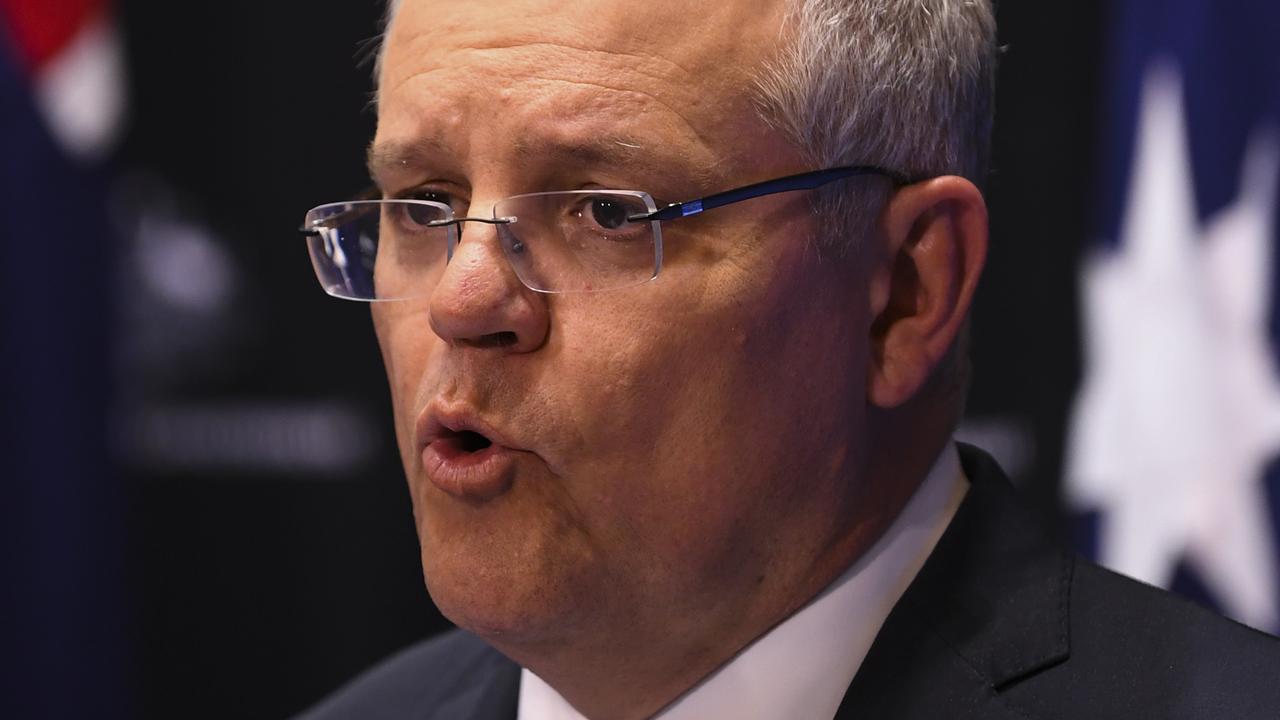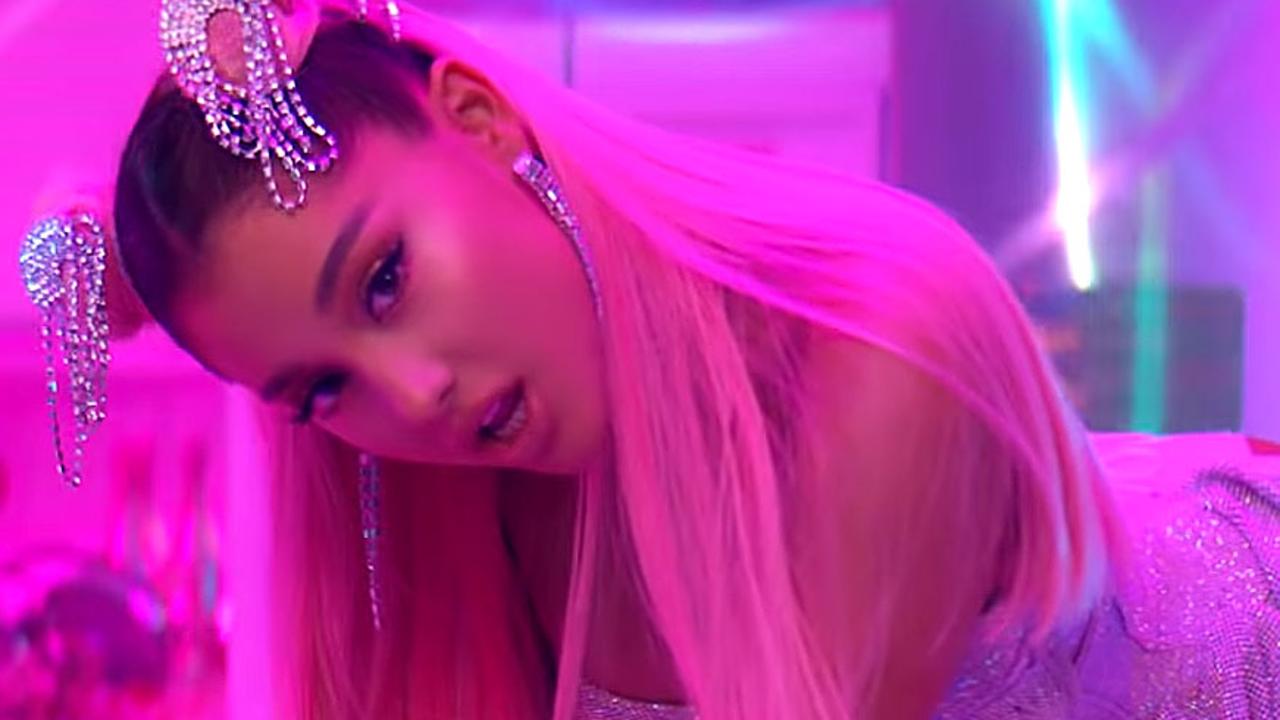Illegal downloading in government’s sights as Online Copyright Infringement Discussion Paper takes aim at consumers, ISPs
THE days of downloading your favourite TV show for free are numbered. Here’s how the piracy crackdown could cost you.
THE days of downloading your favourite TV show for free could be numbered, with details emerging about the plans to crack down on internet piracy.
A leaked discussion paper on the issue, published by news website Crikey, outlines measures the Federal Government is considering to curb illegal downloading, including forcing internet service providers (ISPs) to block offending websites and punishing customers caught infringing copyright.
But John Stanton from ISP industry body Communication Alliance says the proposals overlook a major source of the problem — that the content consumers want is not accessible or affordable enough.
Australians are among the worst offenders in the world when it comes to illegal downloading.
A UMR Research study cited in the draft paper found that an estimated 21 per cent of all Australians over the age of 18 had engaged in online piracy.
Furthermore, when Game of Thrones’ fourth season premiered in April, more people in Australia illegally downloaded the program than anywhere else in the world. Australia accounted for 11.6 per cent of the piracy, and Melbourne was the worst-offending city on the globe, according to TorrentFreak.
Aussies are also notorious for downloading top-shelf US dramas Orange is the New Black, Breaking Bad and Homeland.
The paper’s introduction, co-signed by Attorney-General George Brandis and Communications Minister Malcolm Turnbull, says illegal downloading is putting at risk Australia’s $90 billion copyright industries, which employ more than 900,000 people.
“Digitisation means that these industries are particularly susceptible to harm from online copyright infringement with the potential to directly impact on the Australian economy and Australian jobs,” the paper states.

HOW IT COULD AFFECT YOU
The draft paper floats a number of possible ways to punish customers who continue to download content illegally.
It references the US’s Copyright Alert System, which notifies customers when they have breached copyright laws. If subscribers ignore the notices, ISPs can punish them by slowing their internet speed or blocking them from browsing the web altogether until they contact their provider.
RELATED: Australians named worst Game of Thrones pirates
It also notes New Zealand’s graduated response scheme, which compels ISPs to send escalating notices to customers each time they are caught downloading illegally. The consumer can be charged $25 for each notice. The NZ scheme also provides for the copyright holder to seek up to $15,000 in compensation from the Copyright Tribunal.
The paper stops short of recommending a solution in Australia. Instead, it encourages the public to have its say.
“Importantly, the government also expects consumer interests to be a key consideration in any such schemes or arrangements. The government would not expect any industry scheme or commercial arrangement to impose sanctions without due process, or any measures that would interrupt a subscriber’s internet access,” the paper states.

HOW IT AFFECTS YOUR ISP
A key measure in the discussion paper is a plan to place responsibility on internet service providers (ISPs), such as Bigpond or iiNet, to block offending websites.
The paper proposes changes to the Copyright Act that would overturn a High Court ruling of 2012, which found that ISP iiNet was not liable for its customers’ illegal downloading because it didn’t operate or control file-sharing sites, such as BitTorrent or The Pirate Bay.
“The government believes that even where an ISP does not have a direct power to prevent a person from doing a particular infringing act, there still may be reasonable steps that can be taken by the ISP to discourage or reduce online copyright infringement,” the report states.
Copyright holders can list a number of ISPs in any court injunction to reduce the opportunity for people to access blocked sites by switching ISPs.
The paper also provides that if ISPs do not take adequate steps to block the sites that the copyright holders could sue them for “monetary relief”.

But the chief executive officer of ISP industry body Communication Alliance, John Stanton, said the key to solving the problem was providing better and cheaper ways for consumers to access content.
“Infringement happens when consumers find themselves unable to access content lawfully and affordably,” he said.
“Many infringers are what we would call casual infringers. They are not dedicated ‘torrent freaks’. They perhaps don’t understand that their actions are against copyright laws and they are frustrated because they can’t get the content they want legally.”
He said creative sites and platforms such as Pandora and Spotify had given Australians a way to access music lawfully and cheaply, and similar platforms were needed in Australia for movies and TV.
“For a small fee, they can get what they want. Consumers love that. Accessibility can help to solve this problem,” Mr Stanton said.
But blocking offending sites can be problematic.
“There have been many instances overseas where blocking a site is only a temporary fix because it pops up in a different guise soon after, but it has a place in a potential solution,” he said.
Another important issue is who would pay for the scheme, with Mr Stanton saying any costs levelled at ISPs would be passed on to consumers.
A spokesperson from pay TV provider Foxtel, which is half-owned by news.com.au’s parent company News Corp Australia, welcomed government action on the issue.
“While we are not in a position to comment on specifics until we have seen the official version of the paper, we welcome the fact that the government clearly recognises the importance of the creative industries to the economy and society and that they deserve to be appropriately rewarded for their efforts,” the spokesperson said.
“We acknowledge the comments in the draft paper that everyone has a part to play in reducing the incidence of online piracy. We are confident that the government will do its part to put in place a regulatory system that encourages legitimate use and discourages illegitimate use of content.”
The spokesperson rejected Mr Stanton’s comment that content was not readily accessible.
“As far as availability goes, Australia has an abundance of legal means to watch, listen to and play great content in a flexible manner. For Foxtel’s part, we go to great lengths through our ‘Express from the US’ effort to bring content to subscribers as soon as possible. We’ve also made a massive investment to maximise the number of ways in which people enjoy content by making it available on tablets, mobile phones and other popular devices.”
A spokesman for Attorney-General George Brandis declined to comment, but said the final version of the discussion paper was due to be released soon.
Do you think these measures will stop illegal downloading. Join the conversation on Twitter @newscomauHQ.




